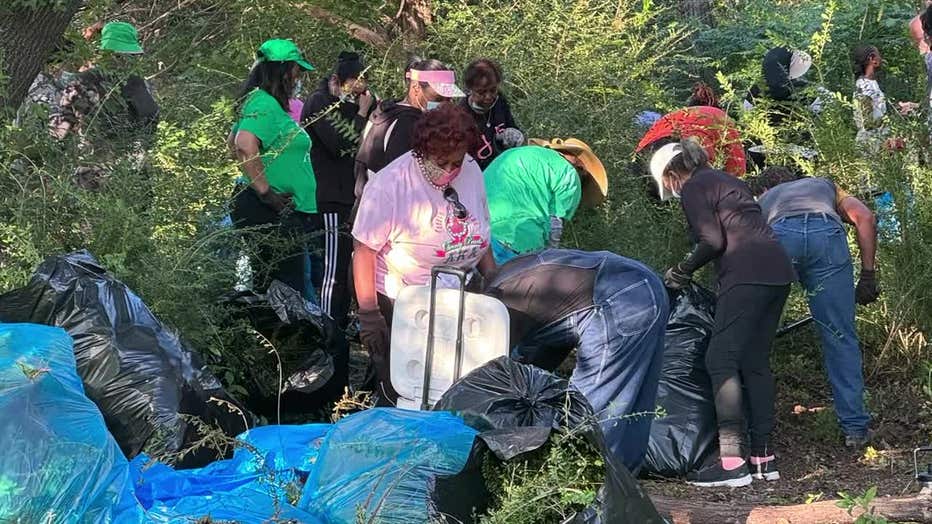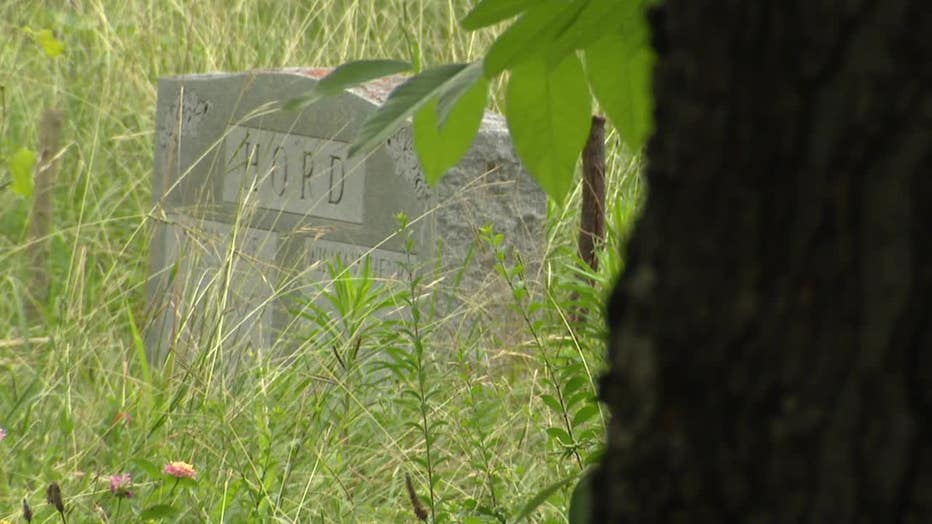Sorority spends Juneteenth cleaning neglected graves at Oak Cliff Cemetery
Sorority cleans neglected graves for Juneteenth
Hundreds of graves belonging to Black Texans, including many born into slavery, were covered by weeds and overgrown trees.
DALLAS - Members of the Alpha Kappa Alpha sorority and others have worked for weeks to uncover a neglected part of the Oak Cliff Cemetery.
Graves they found belonged to people born into slavery.
Before the volunteers arrived, you couldn't even tell there were hundreds of graves belonging to Black Texans.
Weeds, overgrown trees and bushes covered graves in the segregated cemetery.

For weeks, Larry Johnson with the Tenth Street Taskforce and members of the Alpha Xi Omega chapter of the Alpha Kappa Alpha sorority have worked to clean up the area.
"We have quite a few who were born in slavery and died post-emancipation," said Johnson.
Headstones revealed Black Texans who were born as early as 1807.

On Juneteenth, the sorority members and other volunteers came to put flowers at the graves.
"There is nothing more rewarding than enhancing this land, this resting place for individuals who lived lives worth us talking about today," said Rosemary Bolden, the chapter's president.
She believes some of the people buried here could have been doctors and other essential members of the Dallas community.
"They might not have been formally trained, but they were self-made, self-taught. They were dedicated to making society a better place for us to thrive and live," said Bolden.
Johnson says their work is already resulting in helping connect families to their past.
"We uncovered this and a week after the family members showed up to take pictures," he said. "I hope somebody in Little Rock, Arkansas is doing what I am doing here. We are looking for my great-grandfather, Ozel McCallister."


